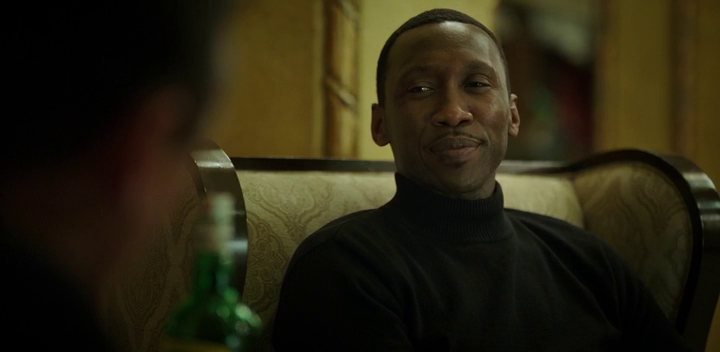
What a character says should ring true considering the kind of person he is. Concurrently, his lines should reveal who he is. A longshoreman and a psychotherapist don’t speak the same way.
Characterization through dialogue is difficult to teach. You learn how people express themselves not by going to class, but by knowing people. You live a lot, you meet a lot of different people, you get an ear for which lines fit someone who comes from a particular environment, has a certain job, political ideas, etc.
For example, think of the scene in Schindler’s List where Oscar Schindler joins a group of Nazi officials for lunch – it’s when he first meets his antagonist Amon Goeth. One of them, greeting him, notices: “You lost weight”. Schindler’s answer is witty: “Only in the shoulders…”. Then, helping himself at the buffet, Oscar asks the diners: “I missed anything good?” At which point, one of the Nazis starts updating him about the concentration camps operations. Again, Schindler replies with humor, clarifying that his question wasn’t referring to their business: “I meant the food…”. Everybody at the table likes him.
That’s how an entrepreneur and a salesman speaks, making everybody in the room feel happy, optimistic, and in a good mood to make business and buy whatever he has to offer.
Another example. The scene from Green Book where uncouth Tony Vallelonga (Viggo Mortensen) and virtuoso pianist Don Shirley (Mahershala Ali) have their first drink together, becoming friends. Don tells his chauffeur his story. He was trained to be a classical musician – the kind of music he loves – but his record company persuaded him to pursue a career in popular music, which would better fit him being a black man. At this, Tony, who was impressed by Don’s performances at the piano, protests. It wasn’t a bad choice, Tony has no doubt. How Don plays popular music is special, nobody could do the same. Don thanks Tony.
This was how the dialogue originally ended. But writer-director Peter Farrelly recalls that Mahershala Ali, while rehearsing, noticed that a man like Don wouldn’t have accepted to finish a conversation like this just with “Thank you” — receiving an opinion, regarding music, from a man like Tony. Ali observed that Don’s attitude, at the end of the scene, would have been this one instead:
“I am not going to let this sixth grade educated bouncer tell me what I should or shouldn’t do and just accept “Oh, good! I am glad Tony Lip likes it… It’s a good thing I am doing this instead of what I wanted to do”.
That’s why a last line by Don was added, more truthful to his character: “Thank you, Tony. (beat) But… not everyone can play Chopin… not the way I can”.
A line is like a note in a melody. You play the wrong one, you feel it. You miss the right one, you miss it. You write it, everything sounds pleasurably natural.

Be First to Comment